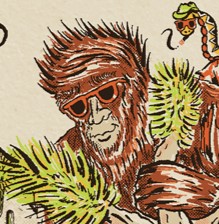So I'm taking the last of my undergrad history courses right now, and one of the books that my professor assigned us is Adam Hochschild's Bury the Chains. We're six chapters in, and so far, Hochschild has centered British abolitionists (primarily Thomas Clarkson) in his accounting of the outlawing of the slave trade in England (I phrase it that way because we all, I assume, know that slavery itself didn't go anywhere after 1833).
Now, I might not be the best read Marxist, but I know enough to be skeptical of any claims of significant historical events being driven by the energy and moral force of "great" individuals rather than the ebb and flow of material reality, a claim Hochschild is definitely making here. He even quotes Emerson in saying "An institution is the lengthened shadow of one man."
Well! I couldn't let that nonsense go unargued, and since lambasting my professor would do no good, I'm here to ask if anybody happens to know the actual reasons the slave trade was outlawed, beyond vagaries about the industrial revolution and wage slavery. Gimme the real nuts and bolts.


That was probably it, right? Experience with factories showed that you could work people to death for a pittance, AND make it their problem to feed and clothe themselves.
The market had cooled off - enslaved populations were big enough in the New World to sustain themselves, which is why they felt comfortable banning the trade (but not the practice) decades earlier. Slavery wasn't popular at home with religious folks, and there was an expensive revolt in Jamaica that was probably the proximate cause. They had new sources of cheap labor in India that they could export to the colonies (see: Trinidad) under the wage model. So by that point there wasn't any reason to keep it.
I could've phrased that better, what I meant was I know those were the culprits, but I was hoping to pick this comm's brains for details. Which you've just provided a bit of, so thank you!